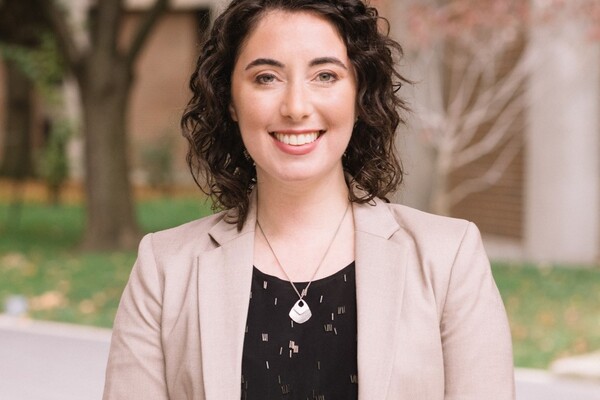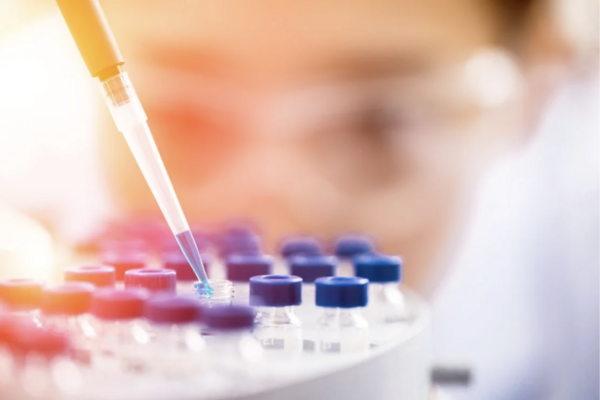Neuroscience experts gather in Brazil
Gavin Au-Yeung
Some of the world’s leading researchers in neuroscience are gathering in Brazil Dec. 7-8 for a conference co-hosted by the University of Toronto and the University of São Paulo (USP).
“Our hope is that this conference will be a watershed that leads to a new era of cooperation between Brazil and Canada and successful collaboration in neuroscience research and education,” said Dean Catharine Whiteside.
The conference will address four key neuroscience topics: aging, behaviour disorders, neurogenetics (the role of genetics in the development and function of the nervous system) and neuroimaging (creating and interpreting images of the structure, function or pharmacology of the brain) and neuroanatomy. Whiteside will be joined at the conference by U of T President Dr. David Naylor, along with leading clinicians and researchers from the university.
“At the University of Toronto, our critical mass of neuroscience researchers and clinicians are addressing the biggest challenges in brain health — from neurodegeneration and mood disorders to traumatic brain injury,” Whiteside said. “By working with our global peers, discovery is accelerated - and the University of São Paulo offers an excellent opportunity for such collaboration.”
Professor Cheryl Grady, from the Department of Psychiatry, is looking forward to sharing her work on aging at the conference. Grady focuses on age-related changes in memory, studying why particular types of memory are more vulnerable than others. Using neuroimaging techniques, she measures brain activity during cognitive tasks, comparing the brain activity of older adults with that of younger adults, to learn how the aging brain changes and adapts.
“I have always been interested in the brain and how it works. My first job out of graduate school was in the National Institute on Aging (in the US),” said Dr. Grady. “It was clear to me early on that aging was actually a very interesting and complex area of study, and I have been fascinated by it ever since.”
“There is considerable overlap in our neuroscience interests and those of the faculty at USP,” she adds. “Sharing data is becoming more and more important in the brain imaging field of research. By combining data across labs and countries we can begin to ask questions that can’t be addressed with the small numbers of participants that we typically collect in our experiments.”
Professor James Rutka, Chair of U of T’s Department of Surgery, Division of Seurosurgery, will also be speaking at the conference. Dr. Rutka's primary research and clinical interests relate to the science and surgery of human brain tumours. His laboratory interests lie in the molecular biology of human brain tumours - specifically in the determination of the mechanisms by which brain tumours grow and invade.
“With our research, we hope to unravel the molecular complexities of these tumours and come upon better treatment strategies by identifying novel targets for drug design,” said Rutka. “Fortunately, we have been collaborating with our Brazilian colleagues in the field of human brain tumours for some time.
“The combined expertise in the molecular genetics and biology of human brain tumours at both institutions (U of T and USP) will lead to the opportunity to pilot key clinical trials once druggable targets have been identified and tested in models in our labs – it will be a true collaborative effort.”
Other experts representing the U of T at the neuroscience conference include: Dr. Stephen Strother (neuroimaging and neuroanatomy), Dr. Trevor Young (the molecular basis of mood disorders and their treatments) and Dr. Jim Kennedy, a neurogenetics expert who specializes in the susceptibility of genes for psychiatric disorders, the genetics behind a patient’s response to medication or side effects (pharmacogenetics) and the genetics of neuroimaging (such as magnetic resonance imaging and PET – or positron emission tomography – scans.)
The roster of U of T experts attending the conference also includes:
- Associate Professor Bernhard Ross, Department of Medical Biophysics, who combines basic research about brain function and how this is reflected in electromagnetic brain activity with potential clinical application.
- Associate Professor Jed Meltzer fo the Department of Psychology. Dr. Meltzer’s research deals with the neural mechanisms responsible for understanding and producing language.
- Professor Sid Kennedy, Department of Psychiatry, and Psychiatrist-in-Chief, University Health Network. Dr. Kennedy's research involves anxiety, bipolar disorder, clinical trials, major depression, mood disorders, neuroimaging, pharmacotherapy, neuroimaging and Neurostimulation.
- Assistant Professor Ana Andreazza, Departments of Psychiatry, Pharmacology & Toxicology Medicine. Andreazza's research interests include; Neuroscience; Pharmacology; Toxicology and Pharmaceutics; Biochemistry, Genetics and Molecular Biology; Psychology.
- Assistant Professor Clement Hamani, Department of Surgery, Division of Neurosurgery. Dr. Hamani's research interests are in the field of the neurosurgical treatment of movement disorders, epilepsy, pain and psychiatric disorders.
- Professor Allan Kaplan, Vice-Chair, Research, Department of Psychiatry. Dr. Kaplan has worked in the field of eating disorders for 30 years, has lectured widely on various topics in the field, published 150 peer reviewed articles, two books, 50 book chapters and over 200 abstracts.
- Associate Professor Jeff Daskalakis, Department of Psychiatry, Director of the Brain Stimulation Research and Treatment Program at CAMH an expert on the neurophysiology of severe psychiatric disorders.
- Associate Professor Berge Minassian, Department of Paediatrics, Canada Research Chair Pediatric Neurogenetics. Dr. Minassian’s Lab has identified two genes related to a teenage-onset fatal inherited epilepsy syndrome (Lafora disease) and is close to identifying a third.
- Assistant Professor Aristotle Voineskos, Department of Psychiatry. His work uses neuroimaging and genetics approaches to map gene effects in the brain with a view to discovering vulnerability pathways for severe mental illness.
- Claudia Faria, Ph.D Student, Rutka Lab whose research focuses on medulloblastoma - working towards a personalized therapy in pediatric brain cancer.
News


